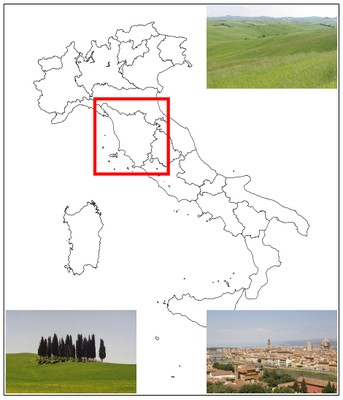| case: | SE1 | location: | Tuscany (Italy) | sectors: | Agriculture and livestock; Water resources | adaptation measures |
As regards climate change, Tuscan agriculture is at the same time fragile and particularly exposed to, and kind of resistant.
While farms are generally small sized, the productive fabric is homogeneously distributed over the territory and well integrated with the other productive sectors and the whole society. Landscape, and therefore agriculture, which has been the main actor of the shape of the well-known Tuscan hills, is considered a common heritage to be preserved.
|
see also the following MEDIATION Policy Briefs:
On the other side, climate change is predicted to force Tuscan agriculture to cope with increasing threats to the wine production, as well as the landscape in general.
Will climate change force farmers to change grape varieties or even strongly reduce grape suitable areas in Tuscany so to induce farmers to switch to other more profitable crops? Will irrigation or new tillage become necessary? How local labels, such as Chianti consortium one, will deal with it? How important multifunctionality will be for Tuscan farms? What the regional government should do about this? |

The Tuscany region
. Source: own elaboration |